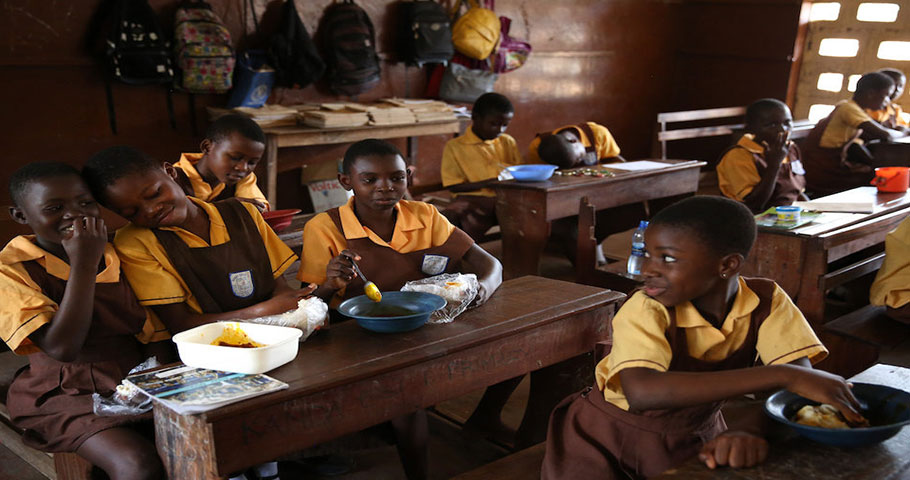Adolescent sexual and reproductive health (ASRH) is an important issue that needs to be addressed in Kenya. It is a critical period in life when individuals experience physical, emotional, and social changes that affect their health and well-being.
ASRH challenges are significant in Kenya, as the country faces high rates of teenage pregnancies, sexually transmitted infections (STIs), and limited access to sexual and reproductive health (SRH) information and services.
This article will explore some of the challenges facing ASRH in Kenya and propose potential solutions.
The Challenges of Adolescent Sexual and Reproductive Health in Kenya
ASRH is a critical issue in Kenya, where nearly half of all pregnancies occur among adolescents. According to the Kenya Demographic and Health Survey (KDHS) 2014, almost 50% of all pregnancies in Kenya occur among adolescents, with the highest rates among girls aged 15-19.
The challenges of ASRH in Kenya are multifaceted and include:
Lack of Comprehensive Sex Education
Although the government of Kenya introduced comprehensive sex education in schools in 2013, it is not yet mandatory, and many schools do not offer it. Additionally, parents are often reluctant to discuss the topic with their children, either because of cultural taboos or their discomfort with the topic.
As a result, many adolescents are uninformed about the risks associated with sexual activity and may engage in risky behaviors such as unprotected sex, multiple partners, and early sexual debut. This increases their risk of unintended pregnancies, unsafe abortions, and sexually transmitted infections (STIs), including HIV.
According to the 2014 Kenya Demographic and Health Survey, 14% of adolescent girls aged 15-19 have begun childbearing, with 21% of them reporting that their pregnancies were unintended.
Stigma Surrounding Adolescent Sexuality
In many communities in Kenya, adolescent sexuality is considered taboo, and talking about it is often met with shame and stigma. This cultural attitude makes it difficult for adolescents to seek SRH services or information, which can lead to poor health outcomes.
Limited Access to Sexual and Reproductive Health Services
According to the 2014 Kenya Demographic and Health Survey, only 19% of sexually active adolescent women aged 15-19 used a modern method of contraception, and only 38% of pregnant adolescents received antenatal care from a skilled provider. This is partly due to a lack of adolescent-friendly SRH services in many parts of the country.
Many clinics and health centers lack the resources and trained staff to provide high-quality, youth-friendly services. For example, some health providers may lack the knowledge and skills to address the unique SRH needs of adolescents or may be uncomfortable discussing sensitive topics such as sex and contraception with young people.
In addition, SRH services that do exist are often located far from where adolescents live or go to school, making it difficult for them to access services. This can be particularly challenging for adolescents from low-income households who may not have the resources to travel long distances or pay for transportation to reach health facilities.
Gender Inequality
Gender inequality in Kenya is a significant challenge for ASRH. Young girls are particularly vulnerable to early marriage, unwanted pregnancies, and STIs due to their limited power to negotiate safer sex practices or make informed decisions about their reproductive health.
Poverty and Socio-Economic Disadvantage
Poverty and socio-economic disadvantage often make it difficult for adolescents to access SRH services and information. Many adolescents in Kenya do not have the financial resources or social support to navigate the complex health system or access SRH services.
Limited Availability of Contraceptive Options
Kenya’s health system has limited contraceptive options for adolescents, and some contraceptive methods are difficult to access, such as long-acting reversible contraceptives (LARCs). This lack of options limits adolescents’ ability to make informed decisions about their reproductive health and may contribute to unintended pregnancies.
Social and Cultural Norms
Social and cultural norms can also pose a challenge to ASRH in Kenya. Traditional beliefs, myths, and practices may prevent adolescents from seeking SRH services, such as seeking the approval of elders before accessing such services or receiving permission to access services from male partners or relatives.
Effects of the lack of SRH services
The lack of sexual and reproductive health (SRH) services can have significant negative effects on adolescents’ health, well-being, and overall development. Some of the impacts of the lack of SRH services include:
Unintended Pregnancies
Adolescents who lack access to contraception and SRH services are at a higher risk of unintended pregnancies. Unintended pregnancies can lead to unsafe abortions, which can result in maternal mortality or long-term health consequences.
STIs
Adolescents who do not receive SRH services are at higher risk of contracting sexually transmitted infections (STIs), including HIV. These infections can have long-term health consequences and may increase the risk of infertility.
School Dropouts
Adolescents who become pregnant or contract STIs may drop out of school due to stigma and discrimination. This can limit their educational opportunities and prospects.
Mental Health Issues
Adolescents who experience unintended pregnancies or STIs may also experience mental health issues such as depression and anxiety, which can affect their overall well-being.
Poverty
The lack of SRH services can also perpetuate the cycle of poverty. Adolescent mothers may be unable to complete their education, limiting their job prospects and earning potential, which can contribute to long-term poverty.
Early Marriage
In Kenya, some adolescent girls may be forced into early marriage due to cultural and social norms. Early marriage can limit a girl’s education and career prospects, and also increase the risk of maternal mortality and morbidity.
Gender-Based Violence
Adolescents who lack access to SRH services may also be at a higher risk of gender-based violence, including sexual assault and coercion.
Limited Empowerment
The lack of comprehensive sex education and SRH services can limit adolescents’ empowerment and decision-making abilities regarding their sexual and reproductive health. This can perpetuate harmful gender norms and contribute to the perpetuation of gender inequality.
Solutions to Address ASRH Challenges in Kenya
Several solutions can be implemented to address the challenges facing adolescent sexual and reproductive health (ASRH) in Kenya. Some of these solutions include:
Comprehensive Sex Education
The government of Kenya should make comprehensive sex education mandatory in schools to ensure that all adolescents receive the necessary information to make informed decisions about their sexual and reproductive health.
Empowerment of Adolescents
The government should invest in programs that empower adolescents to make informed decisions about their SRH. This includes programs that provide adolescents with the necessary knowledge and skills to negotiate safer sex practices and make informed decisions about their reproductive health.
Accessible SRH Services
The government should prioritize the establishment of adolescent-friendly health centers and clinics, and ensure that they are accessible to all adolescents. This includes providing transport and information to enable adolescents to access these services.
Addressing Gender Inequality
The government should prioritize programs that address gender inequality and promote gender equity. This includes addressing early marriage and gender-based violence and providing girls with education and economic opportunities.
Financial Support
The government should provide financial support to organizations that promote ASRH in Kenya. This includes supporting initiatives that provide SRH information and services, as well as programs that empower adolescents to make informed decisions about their health.
Increasing Contraceptive Availability
The government of Kenya should prioritize expanding the availability of contraceptive options to adolescents, including LARCs. This can be achieved by training healthcare providers to offer comprehensive counseling on contraceptive options, increasing the distribution of contraceptives, and ensuring that all healthcare facilities provide a full range of contraceptive options.
Cultural Sensitivity
To address cultural norms that may prevent adolescents from accessing SRH services, the government should prioritize cultural sensitivity training for healthcare providers. This will help healthcare providers understand and respect the cultural practices and beliefs of adolescents and their families while providing high-quality, non-judgmental SRH services.
Community-Based Approaches
The government should work with community leaders, religious leaders, and other influencers to promote SRH education and access to services. This approach can help to reduce stigma and ensure that adolescents have access to the SRH services they need.
Conclusion
ASRH is a critical issue in Kenya, and addressing the challenges faced by adolescents requires a comprehensive approach that includes education, empowerment, and access to SRH services. By investing in these solutions, the government of Kenya can help adolescents make informed decisions about their sexual and reproductive health, reduce unintended pregnancies and STIs, and promote gender equity and social justice.
Overall, addressing the challenges of ASRH in Kenya requires a multi-pronged approach that includes education, empowerment, and access to SRH services. By prioritizing these solutions, the government of Kenya can help adolescents make informed decisions about their sexual and reproductive health, reduce unintended pregnancies and STIs, and promote gender equity and social justice.
Donate today and put your best foot forward in supporting ASRH in Kenya!
Put Her Best Foot Forward Africa helps address the challenges of adolescent sexual and reproductive health in Kenya. As a nonprofit organization dedicated to empowering young girls in Africa, we provide comprehensive sex education, promote gender equality, and improve access to sexual and reproductive health services.
We conduct educational workshops, community outreach, and advocacy efforts to raise awareness about ASRH and promote healthy sexual behaviors among adolescents. We also provide scholarships and run feeding programs for marginalized girls.
If you are passionate about addressing the challenges of adolescent sexual and reproductive health in Kenya, consider donating to Put Her Best Foot Forward Africa here. Your donation will support our programs and initiatives that empower marginalized girls.

